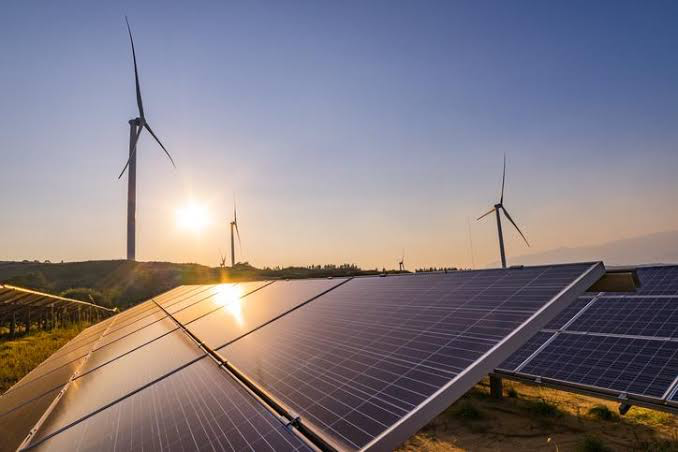Anglo American, a global mining behemoth, has successfully secured financing for a pioneering renewable energy initiative in South Africa, highlighting a significant stride toward sustainable mining practices in the region. In partnership with EDF Renewables and Envusa Energy, this venture marks a monumental shift towards integrating renewable energy sources—wind and solar—into the mining sector, underscoring the industry’s commitment to environmental stewardship and the reduction of carbon emissions.
The collaboration has birthed the Koruson 2 cluster of renewable projects, strategically located on the cusp of the Northern and Eastern Capes. This initiative boasts a combined capacity of 520MW, derived from the Umsobomvu and Hartebeesthoek Wind projects, each contributing 140MW, and the Mooi Plaats Solar project, adding a significant 240MW. This renewable energy suite forms a critical component of Envusa Energy’s expansive portfolio of wind and solar projects across South Africa, epitomizing the transition towards a greener, more sustainable energy paradigm within the mining industry.
This venture is not merely an exercise in green energy adoption but a comprehensive strategy to develop an interconnected renewable energy ecosystem. Envusa Energy envisions this network supplying Anglo American’s operations in the Southern African region with clean energy, alongside additional power generation transmitted via the national grid. The initiative promises to significantly reduce electricity costs for Anglo American by leveraging the exceptional yield resources of the Koruson 2 projects and a robust connection to Eskom’s grid infrastructure.
Central to this renewable energy endeavor are the 20-year off-take agreements signed between Anglo American’s South African operations—including Anglo American Platinum, Kumba Iron Ore, and De Beers—and Envusa Energy. These agreements delineate the supply of 461MW to Anglo American Platinum, with Kolomela and Venetia mines receiving 11MW and 48MW, respectively. Slated for commercial operation by 2026, this phase of the project is expected to reduce carbon dioxide emissions by approximately 1.5 million tonnes annually, marking a significant step towards Anglo American’s goal of achieving carbon-neutral operations by 2040.
Themba Mkhwanazi, Anglo American’s Regional Director for Africa and Australia, emphasized the project’s pivotal role in mitigating the company’s Scope 2 emissions in Southern Africa. Moreover, the initiative is anticipated to bolster energy reliability and fortify grid resilience, further contributing to South Africa’s energy security.
Nolitha Fakude, Chair of Anglo American’s Management Board in South Africa and Chair of Envusa Energy, heralded the energy transition as a catalyst for economic revitalization, aligning with South Africa’s aspirations for a sustainable, low-carbon economy. Tristan de Drouas, CEO of EDF Renewables in South Africa, echoed this sentiment, viewing the financial closure of these projects as a foundational step towards realizing Envusa Energy’s ambition of deploying 3GW to 5GW of wind, solar, and storage projects by 2030.
Beyond the environmental and economic benefits, the Koruson 2 projects underscore a deep commitment to community engagement and empowerment. Envusa Energy is actively exploring various black economic empowerment (BEE) and community partnership models, aiming to ensure that local businesses and communities benefit from the renewable energy ecosystem. A notable empowerment initiative includes a 20% equity investment by Pele Green Energy into each of the project companies, coupled with the establishment of a community trust to manage local communities’ financial interests in the Koruson 2 assets.
This comprehensive approach to renewable energy in the mining sector exemplifies a holistic commitment to environmental sustainability, economic opportunity, and community well-being. As Anglo American, EDF Renewables, and Envusa Energy forge ahead with this ambitious project, they set a precedent for the integration of renewable energy in mining and other energy-intensive industries, heralding a new era of sustainable industrial practices in South Africa and beyond.
Source: ESI Africa



